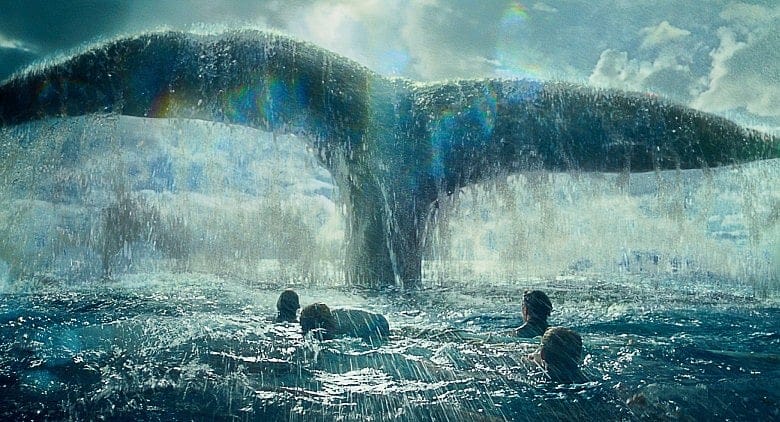‘In the Heart of the Sea’: a ‘Nantucket sleigh ride’ through survival and depravity

Herman Melville's classic "Moby-Dick" has long been considered as a tale of vengeance and a battle against the forces of nature. Like Melville's novel, director Ron Howard's film "In the Heart of the Sea" (rated PG-13) concludes that, when pushed to desperation, man will often reveal an inherently evil heart.
The movie, which will be released Thursday, Dec. 10, is based on Nathaniel Philbrick's non-fiction book of the same name, published in 2000. The book recounts the true story that inspired Melville. In fact, the film opens with Melville (Ben Whishaw) talking with the elderly survivor Thomas Nickerson (Brendon Gleeson). Melville tries to discover what really happened aboard the "Essex," a Nantucket, Mass. whaling ship that sank in 1820 from an attack by an aggressive sperm whale.

